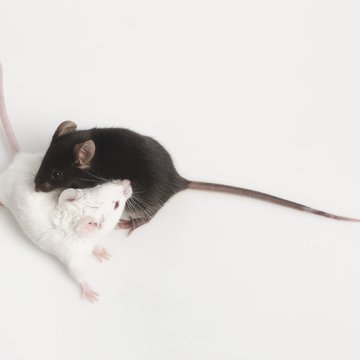About us
While the analysis in human genomics is currently focusing on the genome-wide association studies (GWAS), the mouse model offers a complementary approach using genetic fractionation of polymorphisms on the model of the chromosome substitution strains (= consomic strains) and the recombinant inbred (RI) strains (see the current international project, Collaborative Cross). So far only 4 complete panels of the chromosome substitution strains exist in the world. Two of them were prepared in the USA, one in our laboratory and one in Japan.
We were the first to use a powerful genetic polymorphism that occurred during evolution of two mouse sub-species; Mus m. musculus and Mus m. domesticus to create a panel of consomic strains. Mice from our consomic strains have been partly phenotyped in the PHENOME program in The Jackson Laboratory, Bar Harbor, Maine, USA.
These mice serve as a universal tool for studying wide range of complex human diseases as mentioned above. The consomic strains will find a special use in studying the modifier genes and for studying the genes controlling production of functional sperm.
Analysis of a mouse model of male infertility of interspecies hybrids. The model gains information of the role of individual genes in infertility by following the cellular, subcellular and molecular traits associated with male infertility in mouse sub-species Mus m. musculus and Mus m. domesticus hybrids. The new knowledģe obtained from the mouse infertility model will be applied on data from human male infertility studies. As an example, our recent discovery of Prdm9 gene as mouse hybrid sterility prompted subsequent follow up studies of this gene in patients of human infertility clinics.
More info HERE



